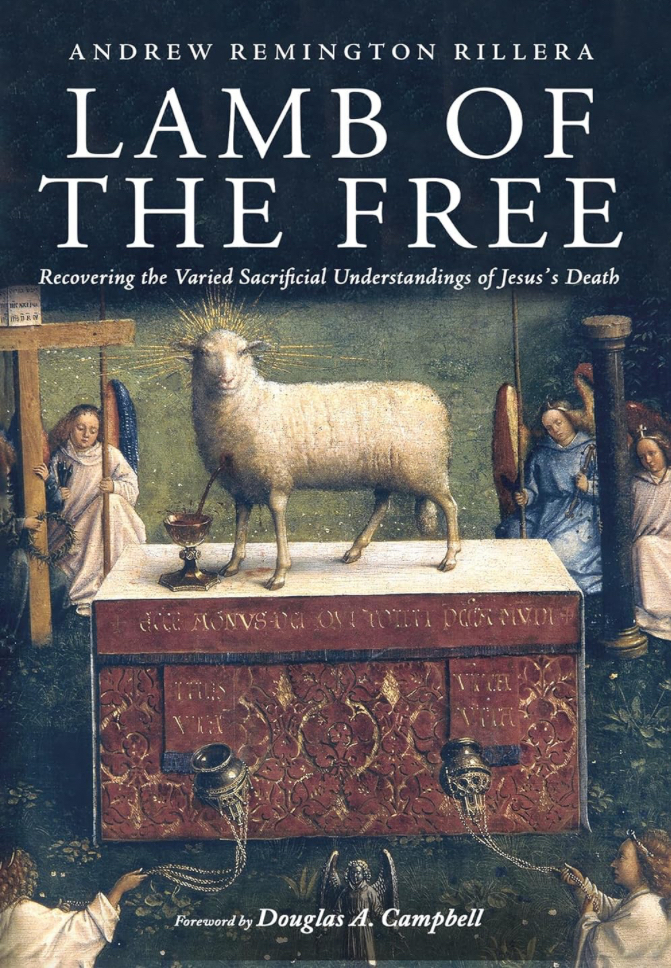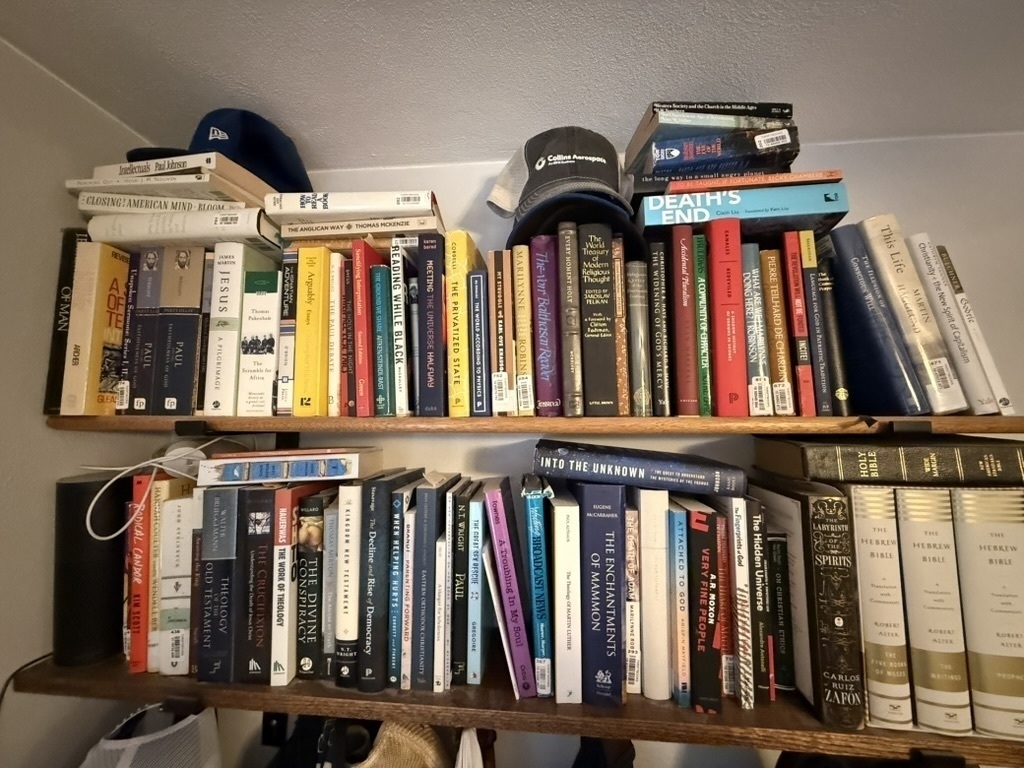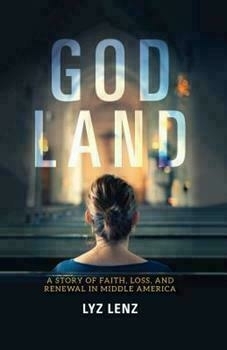Category: Lyz Lenz
You are viewing all posts from this category, beginning with the most recent.
My 2024 Reading In Review
Another year full of books! (Previous summaries: 2023,2022, 2021, 2020, 2019, 2018, 2017, 2016, 2015, 2014, 2013, 2012, 2011, 2010, 2009, 2008, 2007…
I read 63 books for the year, a few less than last year. I keep saying I’m going to stop logging to Goodreads, but it’s so easy and I’ve kept track there for so long that I still do it. I also keep my Bookshelf site over on my own website which I prefer to link you to instead.
The list is almost exactly a 50/50 split between fiction and non-fiction.
Here’s the full list of reading, with particular standouts noted in bold:
Theology / Ministry
- Varieties of Christian Universalism by David W. Congdon
- The Lost World of the Prophets by John H. Walton
- Reading Genesis by Marilynne Robinson
- From The Maccabees to The Mishnah by Shaye J. D. Cohen
- A Window to the Divine by Zachary Hayes
- Wounded Pastors by Carol Howard Merritt
- Lamb of the Free by Andrew Remington Rillera
- Making All Things New by Ilia Delio
- Reaching Out by Henri J. M. Nouwen
- The Experience of God by David Bentley Hart
- The Hours of the Universe by Ilia Delio
- A Private and Public Faith by William Stringfellow
I wrote about the Zachary Hayes book this summer. It’s small and delightful. And I’m looking forward to revisiting Andrew Remington Rillera’s Lamb of the Free as a part of a book club starting next week.

Science and History
- The Kingdom, The Power, and The Glory by Tim Alberta
- Finding Zero by Amir D. Aczel
- The Murder of Professor Schlick by David Edmonds
- Ringmaster by Abraham Riesman
- The Grand Contraption by David Park
- Neurotribes by Steve Silberman (RIP)
- 3 Shades of Blue by James Kaplan
- A General Theory of Love by Thomas Lewis
- Space Oddities by Harry Cliff
- The Hidden Spring by Mark Solms
- Rise and Kill First by Ronen Bergman
- Black AF History by Michael Harriot
- Debt by David Graeber
Ringmaster is a biography/history of Vince McMahon and his WWE empire. It’s a must-read as we enter four more years of a Trump presidency that will be about image and story line rather than truth.
Graeber’s book was fantastic as social science but prompted me to think theologically.
Memoir and Biography
- This American Ex-Wife by Lyz Lenz
- The Exvangelicals by Sarah McCammon
- An Autobiography, or, The Story of My Experiments With Truth by Mahatma Gandhi
Other Miscellaneous Non-Fiction
- Cultish: The Language of Fanaticism by Amanda Montell
- All Things Are Too Small by Becca Rothfeld
- Never Split the Difference by Chris Voss
- How to Read a Book by Mortimer Adler and Charles Van Doren
Fiction
- The Downloaded by Robert J. Sawyer
- Hell Is a World Without You by Jason Kirk
- In Universes by Emet North
- Exordia by Seth Dickinson
- Through a Forest of Stars by David Jeffrey
- Sun Wolf by David Jeffrey
- The Practice, The Horizon, and The Chain by Sofia Samatar
- The Light Within Darkness by David Jeffrey
- The Future by Naomi Alderman
- Siddhartha by Hermann Hesse
- The Year of the Locust by Terry Hayes
- Martyr! by Kaveh Akbar
- The Revisionaries by A. R. Moxon
- Lincoln in the Bardo by George Saunders
- I Cheerfully Refuse by Leif Enger
- The Midnight Line by Lee Child
- Blue Moon by Lee Child
- Do We Not Bleed? by Daniel Taylor
- Heavenbreaker by Sara Wolf
- Red Side Story by Jasper Fforde
- Airframe by Michael Crichton
- Extinction by Douglas Preston
- Killing Floor by Lee Child
- Die Trying by Lee Child
- Moonbound by Robin Sloan
- Some Desperate Glory by Emily Tesh
- Creation Lake by Rachel Kushner
- 2054 by Elliot Ackerman
- Shadow of Doubt by Brad Thor
- Tripwire by Lee Child
- Spark by John Twelve Hawks (unintentional re-read)
Summary
I didn’t realize until I typed up the list for this post that I had run through so much fiction. Guess it was a year I needed some lighter reading. I did a quick count on the books on my to-read shelf and if I constrained myself to just those books, I might have it cleaned off by this time next year. (I mean, that’s unlikely, but it’s a decent goal.)

"Get Freed"
The other day I posted a belated review and recommendation of Lyz Lenz’s book God Land. Today I’d like to tell the story of why this review was delayed a year.
Lyz is, as I am, from Cedar Rapids, Iowa. We have some small personal connection. Her (now ex-)husband works for the same huge employer that I (and 8000 other people in town) do. We have some of the same friends. And for a short time a decade or so ago, we attended the same church. That last bit is what made this whole thing complicated.

God Land is about religion in the Midwest, liberally strewn with Lyz’s stories from her own life. In the first chapter of the book, she recounts bad experiences at a church where she and her husband were members. She wanted to discuss women’s roles within the church. She got brushed off by one pastor with a series of nebulous promises that it could be discussed later. Later, on a mission trip, another pastor refused to let her lead prayer during morning devotions, saying it wasn’t a woman’s place to do so. Eventually she and her husband left that church to join a church plant. (The Guardian published a long excerpt from that chapter if you want to read it.)
A year ago, when reading and reviewing the book, I was still a member of that church. Not only that, I was being paid to lead the music ministry. So when I published my review on Goodreads early on a Monday morning and it got auto-tweeted on my feed, before lunchtime I had a phone call from the new senior pastor telling me that, as a church “staff member” (the first time anyone had called me that!) I shouldn’t be recommending the book. It was gossip, he told me, and I shouldn’t be spreading it. I wasn’t ready to die on that hill that day, so I discussed it with him for a little while and then deleted the tweet. But it still really bugged me.
No one that I’ve talked to has disputed the broad strokes of Lyz’s stories about our church. She privately told me the same basic stories a few years before. In the book she changes the names of the pastors and doesn’t name the church, but if you’ve been in the Cedar Rapids evangelical church scene very long you can probably guess who they are. I’ve been told by others in the know that the events she described on the mission trip did indeed happen that way. And I’ve heard second hand from the other pastor that he didn’t remember his episode “quite that way”, but didn’t dispute the basic facts. (He did confirm Lyz’s note that he has tried reach out again to her on several occasions, and that she hasn’t responded.)
So if the accounts are basically true, why should their mention be suppressed? If someone hasn’t read the book or doesn’t know the people, they won’t be any the wiser. If someone has read the book and does know the people, trying to suppress the discussion only makes it look like the church has something to hide. Why can’t we just speak honestly about it? I count the pastors involved as friends, and I love the people of that church. I don’t want to hurt them. But suppressing truth, even painful truth, isn’t beneficial. Better to acknowledge and learn from mistakes than try to pretend they didn’t happen.
Back last year when the book came out I attended a reading & signing that Lyz did at a local bookstore. During the Q&A after the reading I mentioned that I, too, was trying to figure out if or when my route should lead me out of the evangelical churches where I’ve spent most of my life. Later on that night when she signed my copy of the book, she wrote this message inside: “To the Hubbs’ — get freed!”
I don’t feel that implied level of joy from having left our last church. While I have significant disappointments, I don’t feel any personal animus toward any of those church folks. I feel like we left on good terms. But I am glad to now feel free enough to tell this story. Truth will out. Sure, truth can be spoken in ways that are harmful. But speaking the truth peaceably, in love, is a necessity for the church to become the loving, safe community God intends for it to be. This bit of truth from me is overdue.
God Land by Lyz Lenz — A Belated Review
It’s been a year since Lyz Lenz’s book God Land came out. I wrote a review on Goodreads at the time but for various reasons didn’t publish it here. It’s overdue.
In the mean time, Lyz has published another book, which is still sitting unread on my shelf. (Soon.) She’s also joined the staff of The Cedar Rapids Gazette and has become a strong opinion voice there. I can’t wait to see what she writes next. But in the mean time, here’s my short review/recommendation of God Land.
God Land is an insightful and challenging critique of Christianity in Middle America. Lyz Lenz clearly still loves her Midwestern home, but laments that the predominant Christian voices are conflating Republicanism, gun culture, and male-only leadership with the message of Jesus.
God Land doesn’t try to paint an overly cheery “we just shouldn’t let politics divide us” picture. Lenz’s own story illustrates how divisive these issues can be on a personal level. She doesn’t pull punches as she recounts the end of her marriage, leaving one church, having a church plant die, and her struggles to find supportive community.
God Land’s clear affection for Middle America and portraits of small-town Americans combined with Lenz’ beautiful prose and painfully honest diagnosis make it a must-read in 2019 America.